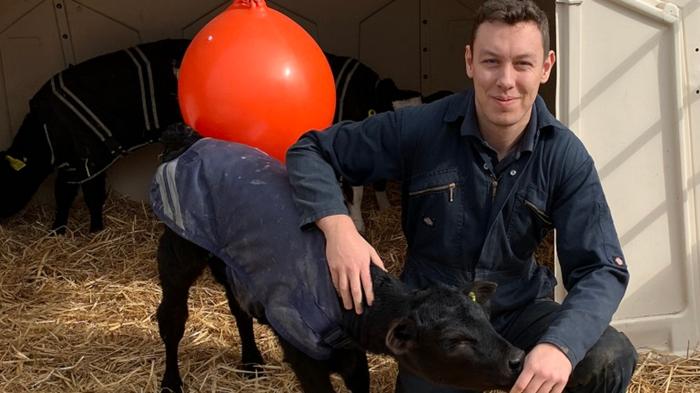Harper Adams University: Dairy farmers asked about calf rearing systems for student research project
Dairy farmers are being asked for their views on contact between cows and calves for a student research project.
Final year BSc (Hons) Agriculture student Ed Hayman is examining the views of farmers on a variety of calf rearing systems in the UK for his final year Honours Research Project. He is particularly interested in the attitudes of farmers to the separation of calves and dams – and wants to find out if more farmers could practice extended cow-calf rearing, where calves will suckle the dam or a foster cow for an extended period.
He said: “Extended Cow-calf contact is the practice of rearing dairy calves alongside their dam or a foster-cow.
“Instead of early separation and artificial feeding, calves will suckle the cow for an extended period of multiple weeks or months before weaning – comparable to a beef suckler herd system.
“Whilst this practice may be common on many small-scale micro dairy farms across the globe, it is relatively uncommon on commercial UK dairy farms – however, farmers who practice extended cow-calf contact praise the system for its benefit to animal welfare, saying that the practice allows for improved learning of cognitive behaviours such as grazing and feeding, with less stress being inflicted on the calf and cow.”
Through the use of a short online questionnaire, Ed is hoping to find out what farmers think of the practice – and if it could be adopted more widely. The questionnaire – which can be found here – is intended for UK resident dairy farmers who rear calves. It aims to gain responses from both conventional rearers, as well as those practicing Extended Cow-calf Contact.
Ed added: “My hopes for this research is to understand the reasons why farmers use certain calf rearing techniques, and to see if extended cow-calf contact could be beneficial for those who do not currently use the practice.”
Ed, 22, grew up on a dairy farm in his native Devon. He said: “I decided to take a degree in Agriculture as I wanted to be in a strong position to take the family business forward in future years. “It was also important to me in terms of the options and security it will provide for a lifetime.
“Harper Adams stood out as the ideal place to get a degree, due to its close involvement with agricultural research as well as having a commercially-run farm on campus.
“Studying at Harper has been an enjoyable experience, and I feel that I have gained a lot of valuable knowledge. It has definitely set me up well for the future.”

